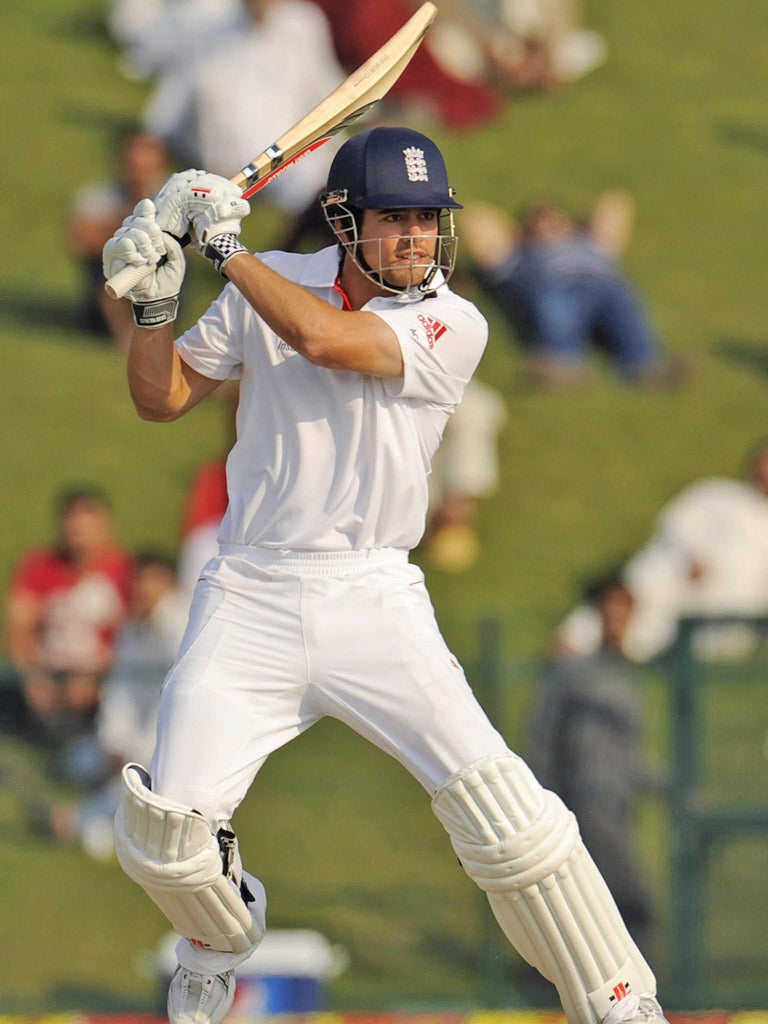DRS has changed the way we have to play spin, admits Cook

England spent most of the second day trying to read Saeed Ajmal. They made progress from Janet and John but only as far as, say, Enid Blyton's less cerebral works. They ploughed their way through doggedly without supplying firm evidence that they quite understood what they were dealing with. The longer they stayed, of course, the more they seemed to grasp.
"I do feel I pick him the majority of the time," said Alastair Cook (right), who made 94 from 224 balls, falling six short of his 20th century for England. "You have to get your technique right so you can adjust to it."
Cook floundered early in the piece as Pakistan introduced spin for the sixth over of England's innings. It was undoubtedly a trial and only his general refusal to be subjugated at the crease saved him.
Cook and his peers have had to alter their play since the introduction of the Decision Review System. It can reduce the whole business of batting to the grotesque. On the other hand, it also means that batsmen have to use their bat rather than kicking the ball away.
"It has changed the way you play spin over the last couple of years," Cook said. "You have to keep your pad out of the way and it certainly doesn't matter how big your stride is because gone are the days when you would say, 'Well, he's a long way down'."
The day was an object lesson for Pakistan in using DRS. Their captain, Misbah-ul-Haq, referred a plum lbw in the morning almost certainly because he could and had nothing to lose. But when England batted, Pakistan asked for two reviews of not out lbw decisions which were given not out because the ball had hit the batsman outside off-stump when he was playing a shot. It was a waste. Yet when they still had one of their two reviews up their sleeve they demurred. Replays showed not only that the ball had hit in line but would have hit middle halfway up. Had that been reviewed, England's resistance might not have been as prolonged as it was.
Cook shared his fourth century partnership with Jonathan Trott for the second wicket. Trott made 74 from 158 balls and, like Cook's, his innings was built on the virtues of determination. When Pakistan got their deserved breakthrough they were just beginning to lose heart.
"When the partnership happens it's quite hard to break," Cook said. "As a fielding side if you get one then that is the chance as a team you can go 'bang, bang'. History suggests that happens in subcontinental conditions."
Join our commenting forum
Join thought-provoking conversations, follow other Independent readers and see their replies
Comments